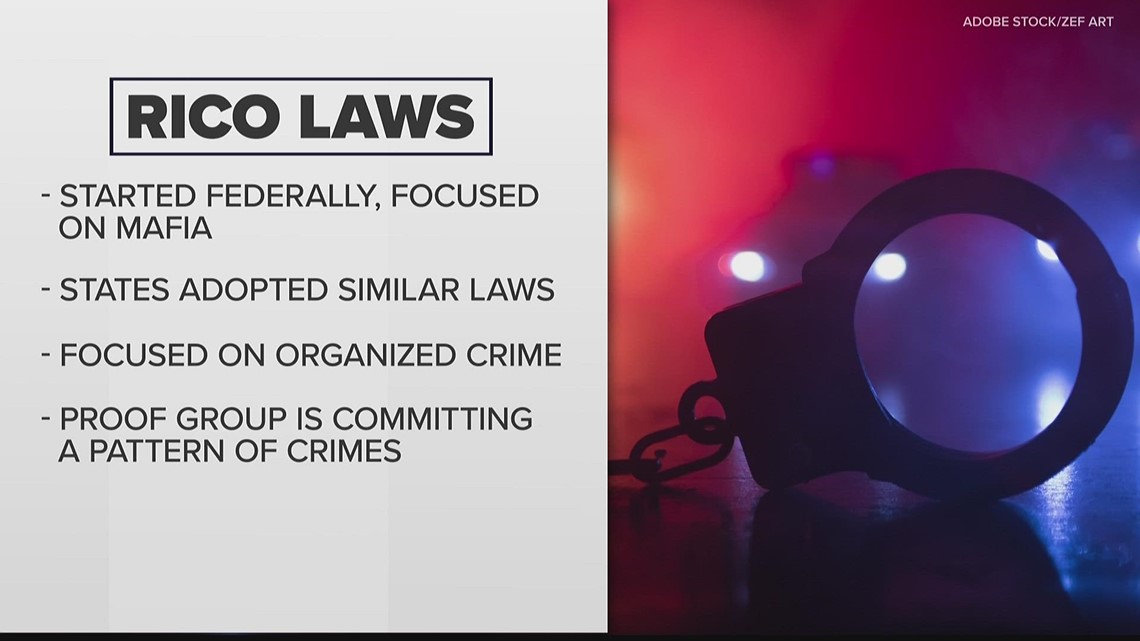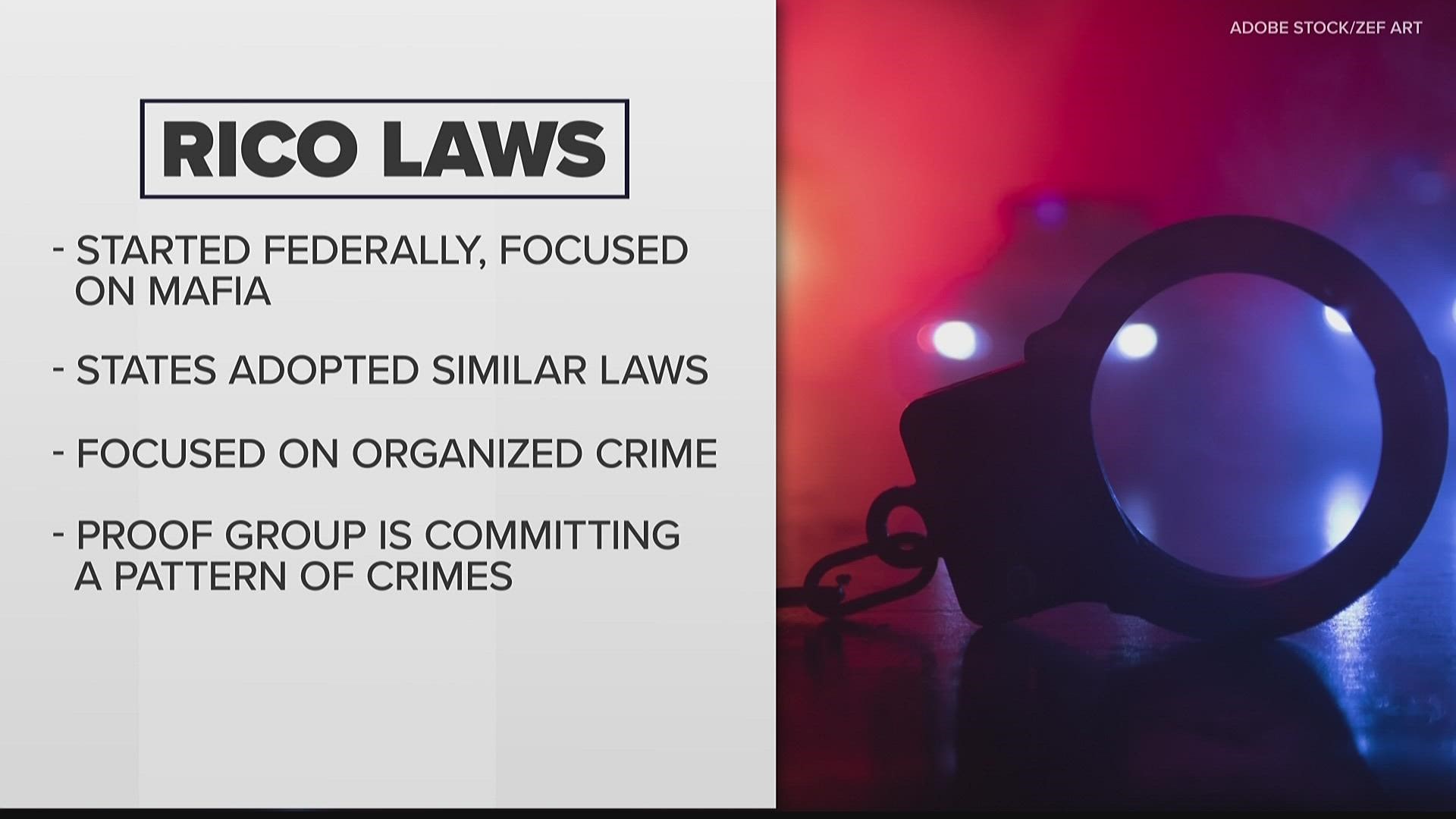ATLANTA — The recent arrests of Georgia rappers Young Thug and Gunna are sparking new interest in the state's Racketeer Influenced and Corrupt Organizations Act. Yet, RICO is a relatively new law and is being applied to organizations or groups that seem to be tied to a string of criminal activity.
On Wednesday Atlanta rapper T.I. made a post on Instagram asking why has the Ku Klux Klan not faced a RICO charge. People on social media started sounding off, asking how can RICO be applied in other instances.
11Alive producer Sydney Spencer took T.I's question and some social comments to legal expert Page Pate. He said, actually, the KKK is not exempt from the RICO Act.
“There is no difference between an organization like the KKK and a street gang or the gang that was indicted in this current case," he said, referencing the Fulton County district attorney's indictment against Atlanta-area rappers Young Thug and Gunna. "The only element that the prosecution would have to prove is that this gang is organized as a racketeering enterprise. “
RELATED: Georgia's RICO Act explained
A racketeering enterprise is categorized as a group or organization committing an organized crime. According to Pate, this is the only proof - along with evidence of the crime - that is needed to charge an individual with RICO.
Initially, the RICO Act was used to prosecute mafia crime, but over the years, it has developed to include a wider base of groups. Pate said that the use of these charges is somewhat new to prosecutors.
“It's really relatively recently that prosecutors have been using the RICO statute to go after something other than traditional organized crime like the mafia. So perhaps if the KKK were more active today, we might see RICO indictments against them,” he said.


He added that despite popular belief, the KKK is also considered a gang according to the Criminal Street Gang statute under Georgia law. It defines a gang as a formal or informal group of people who engage in crime.
“There's no requirement that it have any sort of organized structure. There's no requirement that the members follow any type of specific rituals or protocols, although the law does mention that many times, a gang will be defined by things like signs, clothing, methods of communication -- those are not legal requirements,” Pate explained.
With Fulton County's district attorney's use of Georgia's RICO Act, Pate said other prosecutors may follow suit in non-gang-related cases, casting a wide net to stop crime.
"The important thing is to recognize that any organization can be a RICO enterprise and they can be charged under the RICO statute. As long as there's evidence that individuals in that group have been committing a pattern of underlying crimes in that organization," Pate said.

